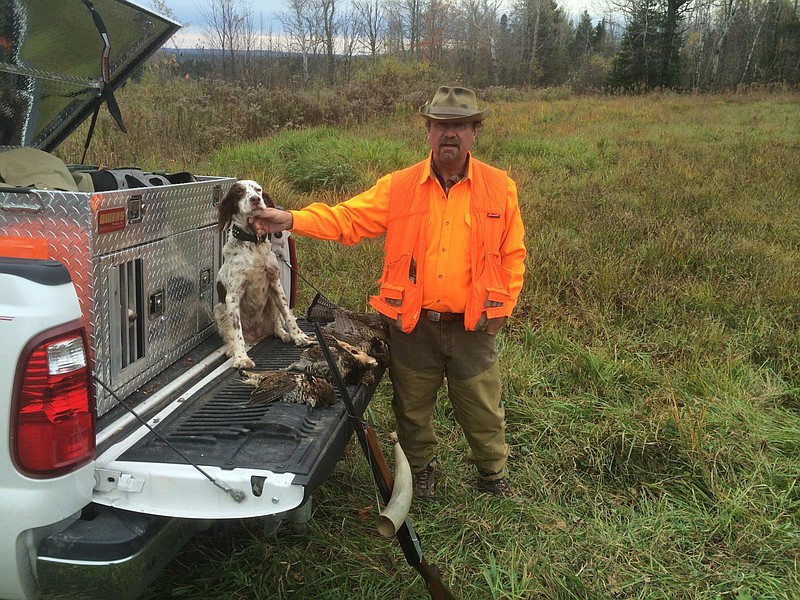"And there came a voice to him, Rise, Peter; kill, and eat." - Acts 10:13, King James Bible
Some things aren't easy to explain. If I asked why you like a hot shower, chocolate ice cream or hearing rain on a tin roof, maybe you could give me a good answer and maybe not. Staying on this line of thinking, explain to me why you enjoy the firm handshake of an old friend, how you felt when you kissed your first girlfriend (or boyfriend) or why you want to wander around the woods carrying a bow or a shotgun.
Not easy, is it?
About this time every year, you will start to see magazine articles and website entries about why we hunt. The number of reasons given are about as many as the campaign promises we are hearing right now. Generally you will hear a lot about getting back to nature, solitude in the forest and sharing in nature's bounty at the dinner table. Sometimes the writers who are attempting to explain this connection to hunting get a lot more lofty and spiritual.
Jose Ortega y Gasset (1883-1955) was a Spanish philosopher who lived in Madrid. While he wrote extensively in the distinguished realm of philosophy, he may be best known for a little piece he did on hunting. Ortega's "Meditations on Hunting" is said to be the most-quoted book about hunting and the sporting life.
He tells us hunting is part of man's very nature, that "hunting is a universal and impassioned sport it is the purest form of human happiness. The essence of hunting or fishing involves a complete code of ethics of the most distinguished design. The sportsman who accepts the sporting code of ethics keeps his commandments in the greatest solitude with no witnesses or audience other than the sharp peaks of the mountain, the stern oak, and the passing animal."
Those are nice words, and while I agree with them, this line of dialogue would make today's rabid anti-hunters wail and gnash their teeth. If you are a hunter and have any interest in preserving our sport, I think you should give "Meditations on Hunting" a look. Ortega wrote this in the early 20th century and you may think the writing a bit pretentious, but I think it might help us modern-day hunters with something - that being we are terrible when it comes to explaining why it is we hunt.
Ask four of your friends who hunt this simple question: "Why do you hunt?" Then sit back and watch the show.
Usually you will see a good deal of stammering and shuffling feet, along with some waving of hands and saying, "Well, you know " Just like rain on the tin roof or that first kiss, most of us are clueless on how to explain it.
Right after I started this column, I noted my friend and fellow hillbilly Richard Mann had written about the same subject. I have told you about Richard before; he is well known in the gun-writing world and has an interesting blog at his website, empty-cases.com. I have to be honest and say Richard does a much better job at explaining this age-old question for hunters. While he may be a little misguided about shotguns, Richard is a very experienced hunter and his words on this subject are worth reading.
So while I have told you a little about what Ortega and my friend Richard may say about this subject, I have not clarified it one bit. That is kind of my point. We hunters have always been - and I think always will be - lacking in this department.
But I think some of it goes back to our ancestors. Once upon a time, we were all hunters. Once upon a time, we all engaged in some phase of the hunt. Once upon a time, we all sat around that big fire and watched while a big chunk of meat was roasting. There was no "right" and "wrong" in hunting. You hunted to eat. You hunted to survive.
Now I know we don't have to hunt to survive these days. (A good thing for many of us!) But I believe the hunting instinct is still there. I believe many of us are hunting and don't even know it. Some of us hunt from a tree stand or make noise with a turkey call. Some of us hunt with a camera or a pair of binoculars as we look for different kinds of birds. "Wildlife watching" has become a major attraction in many areas. We are still hunting; we still long to stare into that fire.
You can think about it this fall as you sit out there with nothing but the "stern oak" to keep you company.
Even if we cannot explain why we do it, the love of hunting makes us all brothers in camo.
"The Trail Less Traveled" is written by Larry Case, who lives in Fayette County, W.Va. You can write to him at larryocase3@gmail.com.
